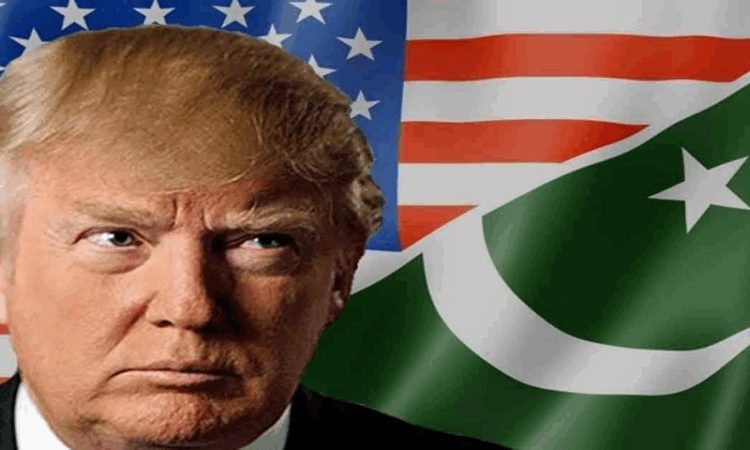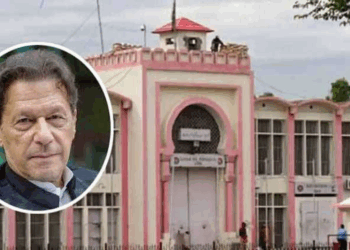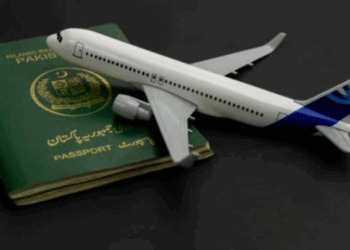Washington, May 31, 2025: U.S. President Donald Trump announced on Friday that Pakistani representatives will arrive in the United States next week for crucial trade negotiations, as Islamabad seeks to avoid steep tariffs on its exports to the world’s largest economy.
“Pakistan representatives are coming in next week,” Trump told reporters at Joint Base Andrews. He added that talks with India are also progressing and emphasized that peace between the two South Asian neighbors is essential for any trade agreements with the U.S. “I wouldn’t have any interest in making a deal with either if they were going to be at war with each other,” he said.
Pakistan currently faces a potential 29% tariff on its exports to the U.S. due to a $3 billion trade surplus, following a global tariff policy unveiled by the Trump administration last month. These tariffs, implemented on April 2, include a 10% baseline tariff and additional reciprocal duties on countries with whom the U.S. has trade imbalances.
Formal trade negotiations between Finance Minister Muhammad Aurangzeb and U.S. Trade Representative Jamieson Greer began Friday via a phone call, according to a statement by Pakistan’s finance ministry.
The Pakistan Institute of Development Economics (PIDE) has warned that the tariffs could result in a $1.1–1.4 billion annual loss for the country’s already fragile export sector, urging diversification of trade partners and products.
Trump also used Friday’s remarks to claim personal credit for brokering the May 2025 ceasefire between Pakistan and India, following a military escalation earlier this month over allegations by New Delhi regarding an attack in occupied Kashmir’s Pahalgam.
The hostilities had resulted in Indian airstrikes on Pakistani territory, which killed civilians, and Pakistan downing five Indian jets in response. Tensions climaxed on May 8 with drone interceptions and airbase attacks on both sides. A U.S.-brokered ceasefire was announced on May 10.
“My intervention stopped India and Pakistan from fighting… That conflict could have turned into a nuclear disaster.”
He stressed that the U.S. cannot trade with nations “potentially using nuclear weapons,” framing peace as a prerequisite for economic cooperation.
This marks the fifth time Trump has publicly asserted that his administration de-escalated the South Asian conflict. While India denies any external mediation, Pakistani officials have privately acknowledged Trump’s intervention and view his remarks as a morale boost ahead of the upcoming diplomatic engagements in the U.S.
A high-level Pakistani delegation, led by PPP Chairman and former Foreign Minister Bilawal Bhutto-Zardari, is scheduled to arrive in New York on Sunday. Their two-day itinerary includes meetings with UN Secretary-General António Guterres, UN General Assembly President, ambassadors of the five permanent members of the UN Security Council and A joint session with OIC envoys.
The delegation will then head to Washington on June 3, where they plan to meet U.S. Secretary of State Marco Rubio, congressional leaders, think tanks, and U.S. media.
Trump’s comments are seen in Islamabad as reinforcing Pakistan’s international relevance and enhancing its negotiating position. His reference to Kashmir as a “festering wound” that must be addressed for peace aligns with long-standing Pakistani diplomatic goals.
In New Delhi, however, Trump’s statements are likely to spark diplomatic discomfort, given India’s traditional opposition to third-party involvement in its disputes with Pakistan.
Notably, U.S. academic Christine Fair, long considered pro-India, also challenged New Delhi’s narrative about the recent skirmish. In a social media post, she said:
“Indians who fail to see the victories that Pakistan snatched from the latest skirmish will fail to understand just why India has not and will not deter Pakistan.”
President Trump also used the moment to contrast his presidency with current global instability:
“When I left, we had no wars, no inflation, and ISIS was defeated. Now we have inflation, wars everywhere — but we’re fixing that, including in South Asia.”
He positioned himself as a stabilizing force amid crises in Ukraine, Gaza, and the Indo-Pacific — adding that America “can fight better than anybody,” but also “stops others from fighting.”
As the Pakistani delegation prepares for a critical week in Washington, the convergence of trade, diplomacy, and regional security will test Islamabad’s ability to leverage Trump’s overtures into concrete gains — both economic and strategic.








